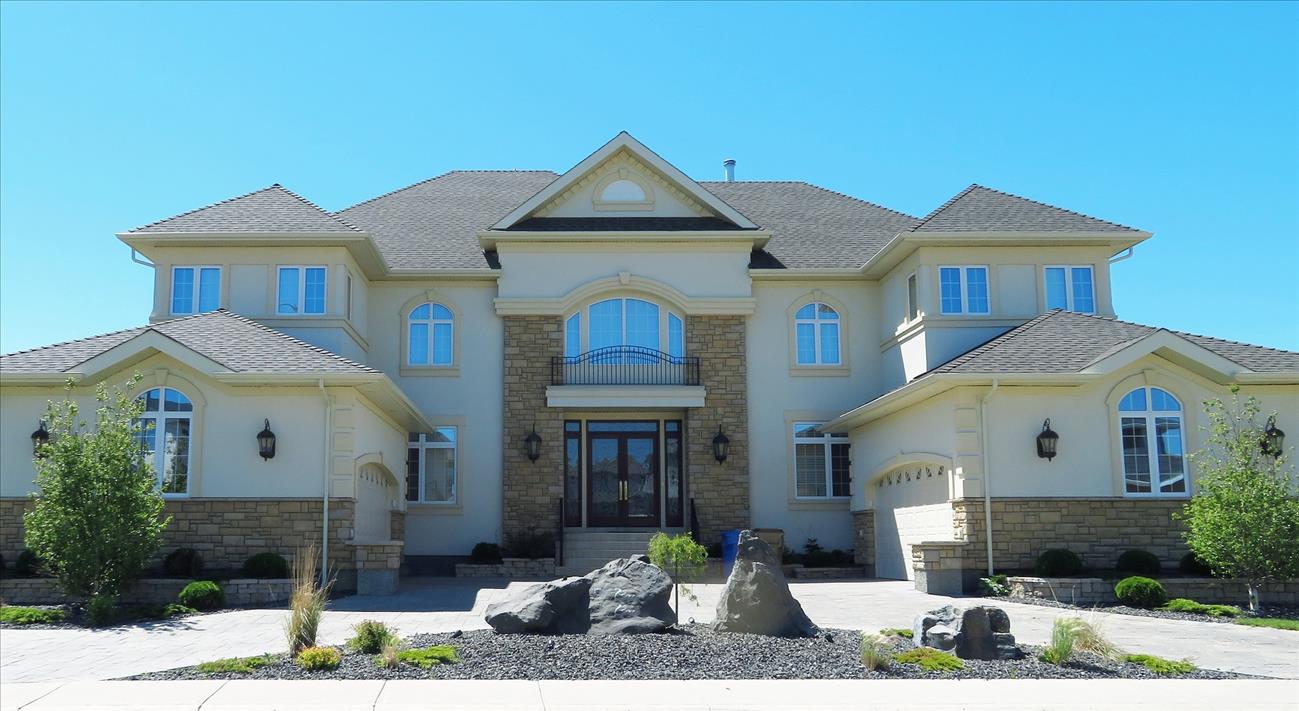If you’re looking to move to a bigger home, you’re not alone. A recent survey found that more than half of Americans prefer larger homes — a trend that’s picked up steam since the pandemic.
Upsizing can come with hidden complications, though. A bigger home typically comes with a bigger mortgage, and buyers of larger homes may end up with more regrets than other buyers.
Before you sign with a real estate agent and call your favorite moving company, make sure you avoid these common mistakes homeowners make when moving to a bigger home.
1. Overestimating your space needs
A lot of Americans decide to buy a bigger house because their current home just “feels small.” That’s a legitimate reason to move, but before you start house shopping, investigate why your home feels small.
Many homes feel small because of a bad layout that renders some space unusable. It’s possible you don’t need more square footage. You just need a home that’s better designed. You may only need to knock down a wall or two to make your present home feel twice as big.
Another common problem is that you have too much furniture. To make a home feel more open, many Realtors suggest home sellers remove half their furniture before they start showing.
If you can’t move freely through your living space — if you have to move sideways or awkwardly maneuver around items — you probably have too much furniture. You may not need a bigger house. Just replace a large sectional sofa with a discreet loveseat.
2. Not planning ahead
Moving is a massive, stressful undertaking. You probably don’t want to do it any more than is strictly necessary. That’s why you need to take a hard look into your future before you close on a bigger house.
A lot of young people buy a bigger home when their family expands, but it’s easy to underestimate how much your family could expand over the next five to 10 years. Plans for one more child could easily turn into two or three.
Even if your kids share rooms, you’re going to need storage space for all their stuff and guest bedrooms for grandparents or other family members who want to visit. Make sure you don’t underestimate your family’s future needs, or you may end up moving sooner than you'd like.
3. Underestimating your future expenses
Larger homes not only cost more to buy, they also cost more to maintain. Expect larger utility bills, property tax bills, home insurance premiums, and maintenance expenses. These are all recurring expenses for which you’ll be responsible, so it’s important to understand the costs.
Even watering your lawn will be more expensive if you have more lawn to water. You’ll also have to fill your house with furniture, although there are ways to furnish on a budget.
Ask the seller of your prospective home for the past year or two of utility and property tax bills. For maintenance, experts suggest setting aside between 1% and 4% of your home’s value annually for upkeep and repairs. The good news is, some expenses, such as moving fees, are tax deductible.
4. Not maintaining your current home
Once homeowners decide to move to a new home, some may subtly — or even grossly — neglect their present home, especially if they’ve decided it’s inadequate in some way. This is understandable from a psychological perspective. Once they’re mentally “checked out” of their house, all that upkeep and maintenance just doesn’t take priority.
It’s vital, however, to preserve your present home’s value while you search for your next, larger home. Although it can be exhausting to conduct a full-scale home search while maintaining or fixing your present home, you’ll be glad you did. Much of your buying power for your next home will depend on how much you sell your house for.
5. Compromising too much on location
The bigger the house, the bigger the price tag. It's natural to look in different neighborhoods to see if you can score a deal. Quite often, you can get a bigger house at a discount if you’re willing to move into a location that’s a little less desirable.
However, affordable, less-desirable neighborhoods are often less desirable for a reason. Whether it’s a poorly rated school district or the absence of amenities — such as public transit, green space, or grocery stores — those areas can come with drawbacks.
Many buyers who compromise on location end up with regrets because life doesn’t stop at the walls of their home. The community you live in is just as important as the home where you reside.
6. Rushing your decision
Buyers looking to upgrade to a larger home are often under some kind of time constraint, whether it’s a baby on the way or a family member moving in.
There are a limited number of large homes on the market at any given time, and in hot markets, buyers may have found their dream home two or three times, only to lose in a bidding war. Buyers looking to upsize are often eager, maybe even desperate, to close. That can lead to rushed decisions, which often result in regret.
Try not to buy sight unseen or rely solely on a video tour. Look at the home in person, and don’t skip the home inspection. You could miss major problems that may diminish your quality of life or even your physical safety.
Are You a Professional?
Requests for your services are coming in left and right. Let’s connect and grow your business, together.


